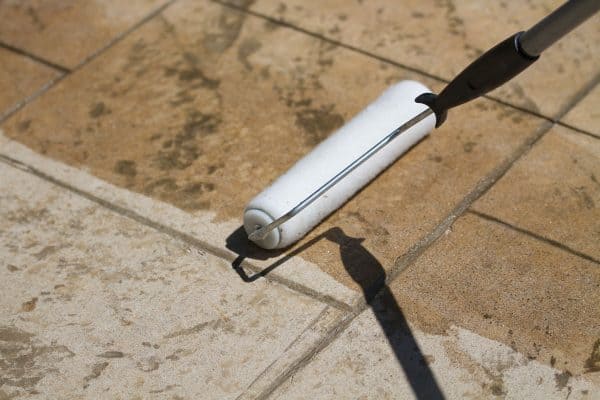Disclosure: We may get commissions for purchases made through links in this post.
Mulch has many environmental benefits. But do you think it is okay to put pavers on it? If so, do you want to know how to? Very well, you are in the right place! We will provide the answers since we have already asked the experts.
Yes, you can put pavers on mulch. Using mulch under pavers is a good thing since it can help suppress weeds.
There are so many advantages to using pavers on mulch. We encourage you to scroll and read throughout the article if you want to know these. We assure you that you will learn a lot from this.
![A garden decorated with patio pavers and mulch for the plants on the side, Can You Put Pavers On Mulch? [And How To Lay And Fill With Mulch]](https://pavingplatform.com/wp-content/uploads/2022/03/Can-You-Put-Pavers-On-Mulch-And-How-To-Lay-And-Fill-With-Mulch-800x1200.png)
How To Put Pavers On Mulch
Easy, peasy! You don't have to worry about hiring a hardscaping professional anymore since you can install it yourself. Just read and follow the steps below to achieve great results.
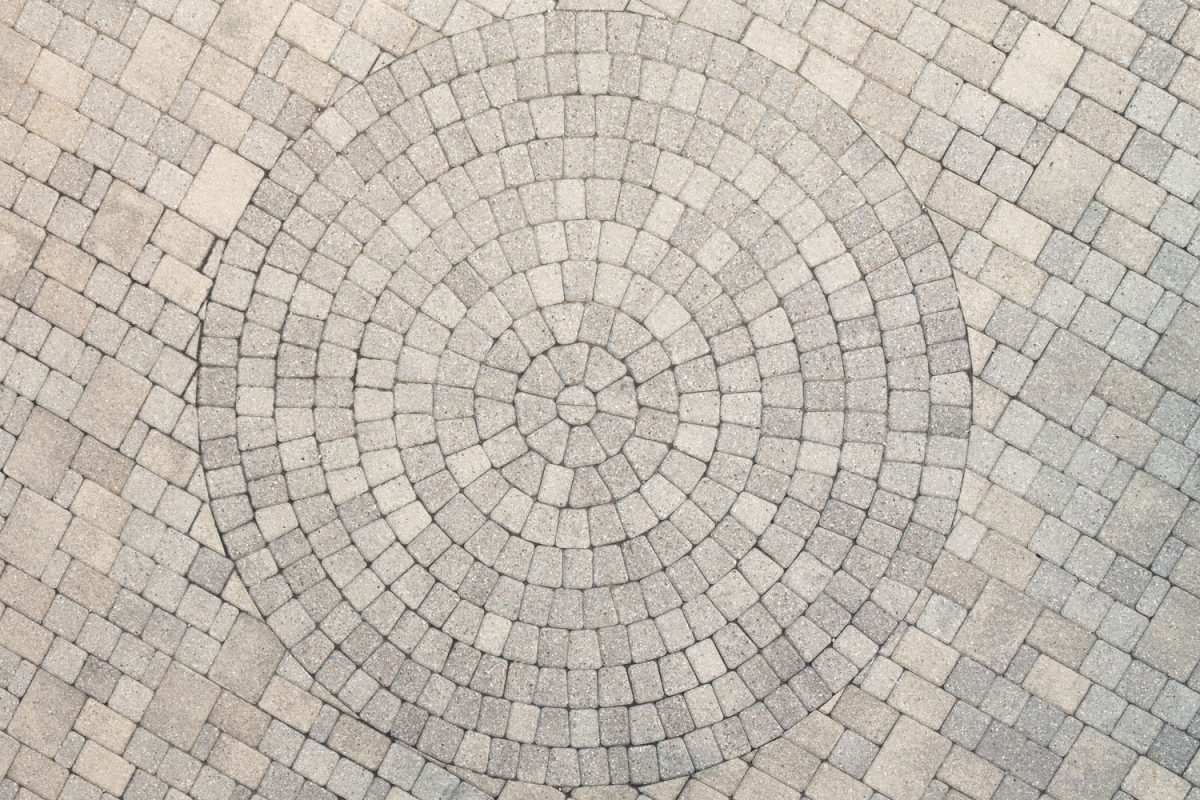
But before getting started, you need to prepare the following materials:
- Mulch
- Landscape fabric
- Sod staples
- Stakes
Check this Landscape Fabric on Amazon.
- Measure the area that you will put the pavers and mulch on.
- Cover the exposed soil with two to three inches of mulch.
- Cut the landscape fabric. You may also use mulch bags if you don't have landscape fabric.
- Lay the landscape fabric and secure it in place using sod staples.
- Choose and create a pattern for your pavers. You can use stakes to mark the pattern. And just in case you don't have available stakes at home, you can call someone to mark the patterned area for you.
- After marking the area, you may now lay the paving stones on that pattern.
- Lastly, put the mulch around the paving stones and make sure to fill the path evenly.
Check these sod staples on Amazon.
TIPS: There are different sizes and types of paving stones available in the market. And it will always be your decision to choose whatever look you want for your pathways. In addition, you can use different kinds of mulch since it also has different varieties.
Advantages Of Using Mulch With Your Pavers
- Aside from stopping weeds from growing between pavers, mulch also keeps the paving stones clean whenever it rains.
- Mulch can make the paving stones balanced or in level with the ground.
- The mulch does its best to prevent the paving stones from sinking, but with proper process.
- It also helps in solidifying the paving stones.
How To Prevent The Pavers From Sinking
To ensure that the bottom of all the paving stones is flat, use a specific level for each one. With that given level, landscape the area.
Once you have finished landscaping the area, use coarse sand to level it out. And to assist the coarse sand to stay compacted on the ground, it would be best to mist it with water. Make sure not to overdo it.
And that's it! Those simple steps will prevent your paving stones from sinking on the ground.
Different Types of Mulch
Mulch is divided into two types:
1. Organic Mulch
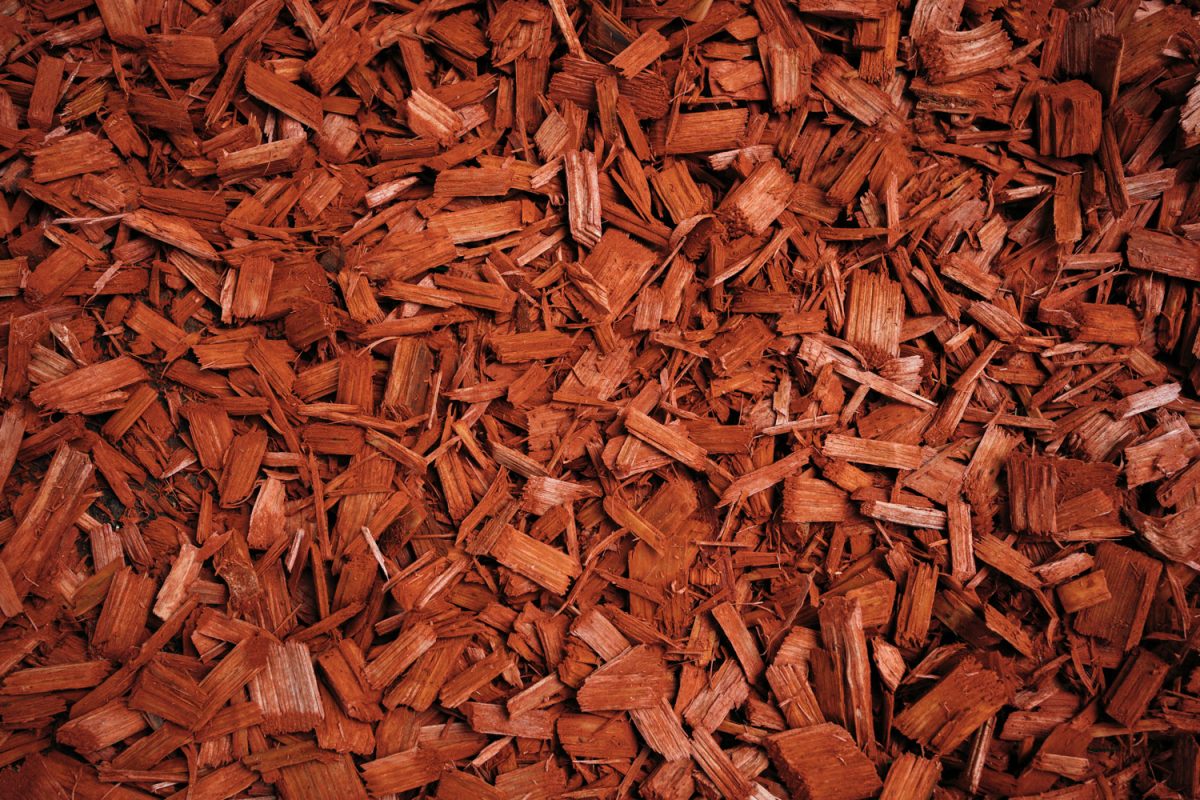
This type of mulch is the most common and originates from living materials, and that includes:
Composts
All those discarded wastes from your kitchen can be a great help to your soil.
Grass clippings
These usually come from the grass you have just sheared from your lawn. Don't throw it out since it will be of great help. You can also use clippings as fertilizer; apply it on your flower or vegetable beds and let it decompose alone.
Wood chips
You can buy these from any local garden store near you. You may also shred some falling tree leaves or barks to create yours.
Sawdust
If there are construction projects near you, you should consider asking for some sawdust or woodworks waste from the carpenters.
Straw or Hay
These are leftovers from grain crops that you can use again.
Chopped leaves and Newspaper
You can shred all the leaves from your yard and unused papers from your office to make a great mulch option.
Newspaper mulches are becoming more and more popular because of their black and white colors that contribute to the overall appearance of your landscape.
Check this leaf shredder on Amazon!
Pine needles
You don't have to worry about getting this material since this is usual yard waste, as in literally fallen pine needles.
All of these materials help to fertilize and enhance the soil. Organic mulch begins to refine and boost the substance of soil when it starts to decompose. In simple words, it improves the soil's quality.
2. Inorganic Mulch

This type of mulch consists of synthetic materials, such as:
- landscape fabrics [geotextiles]
- plastics
- stones
- rocks
Many still prefer this type of mulch since it doesn't decompose, reducing replacement expenses. However, this mulch doesn't enhance the quality of the soil; it doesn't contribute to the growth of plants.
Inorganic mulch helps beautify and improve a pathway with pavers. Additionally, it also helps in preventing the weeds grow.
Both organic and inorganic mulch can make an excellent combination with the paving stones pathway.
Benefits of Using Mulch
Incorporating mulch on your pavers must be the best decision you will ever make. There are six significant benefits that a mulch gives when you use it together with your pavers.
1. Controls Weed
Weeds always seem to be a trouble for homeowners. It is widespread that weeds damage the quality and appearance of any landscape or hardscape project. However, it is wise to use mulch on your pavers since it can suppress weeds even before they take roots. It acts as a protective barrier to both your soil and pavers.
2. Adds Nutrients To The Soil
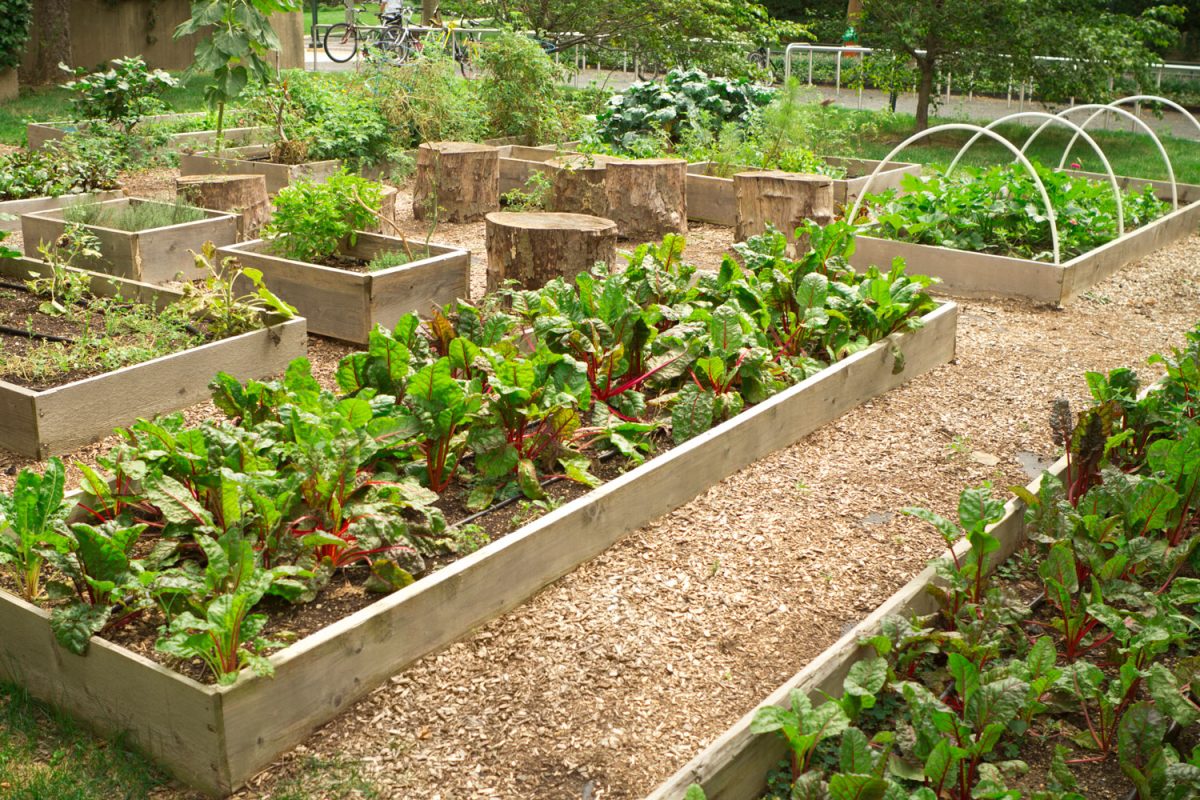
The mulch components such as hay, wood chips, or pine needles will break down over time and set off to be part of your existing soil. And as a result, it will keep the soil soft because it allows water and air. It also provides nutrients for the soil.
This benefit from mulch helps maintain a healthy environment, especially for your plants, bushes, trees, or the entire garden.
3. Prevents Erosion
It is known that exposed soil is prone to damage from the elements of nature since it has no protective barrier. If you have a slanted yard, using mulch on the upper surface of the soil can prevent erosion, especially during rainy seasons. Mulch helps the ground to absorb water.
4. Controls Temperature
Mulch can maintain an even temperature for the soil. During summer or warmer months, it helps shade the soil from direct sunlight. It also retains water from the ground and keeps it cool. Moreover, it helps protect the soil from freezing or frosting during colder months.
5. Creates attractiveness or Curb appeal
Beauty, dimension, and depth are what mulch gives to any landscaping project. Don't keep your soil exposed. Use mulch to keep it healthy and add an attractive touch. Decorate any areas you want to beautify; you can also use a mulch to fill in your flower beds. Don't let your garden or pavers settle for a dull look; aim for an excellent curb appeal!
6. It Will save you time and energy
All the benefits mentioned above contribute to saving time and energy. Since mulch already aids the soil in making it fertile, you won't have to maintain it regularly. It already has insulating properties, retaining groundwater. Such things will help you with water conservation.
In Summary
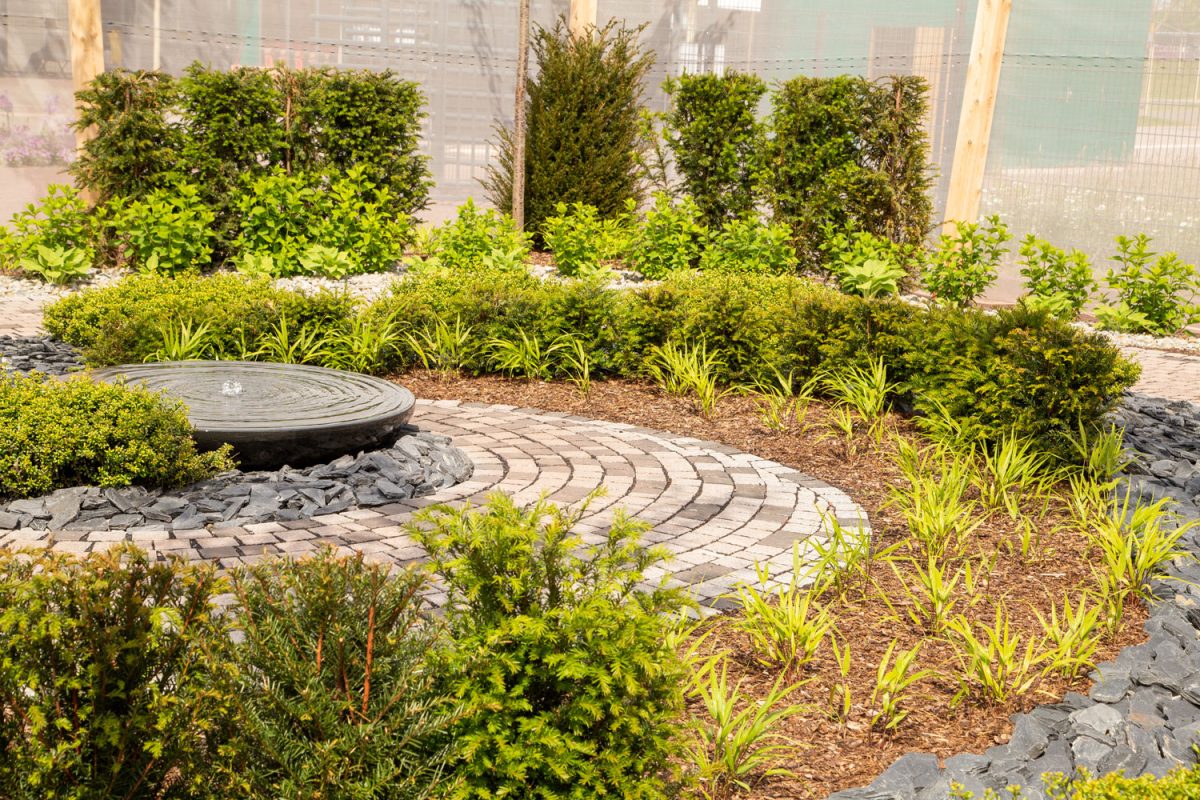
Putting your pavers on mulch is indeed a wise option. We hope that this post truly helped you a lot in the proper installation of both materials. In addition, always keep in mind its advantages and benefits, for it might help you in your future landscaping projects.
We know you enjoyed this post since you have come this far. And you might want to check these out, too!
Does Polymeric Sand Prevent Weeds? [Plus Helpful Tips To Stop Weed Growth In Pavers!]
Are Recycled Rubber Pavers Good For Driveways? [A Comprehensive Review Of Pros & Cons]




![Vibrant Red Paver Stone Path, Can You Spray Paver Sealer? [How To Apply It]](https://pavingplatform.com/wp-content/uploads/2022/04/Vibrant-Red-Paver-Stone-Path-600x400.jpg)
![Properly laid out red pavers for a garden, Can You Tint Paver Sealer? [And How To]](https://pavingplatform.com/wp-content/uploads/2022/04/Properly-laid-out-red-pavers-for-a-garden-600x400.jpg)
